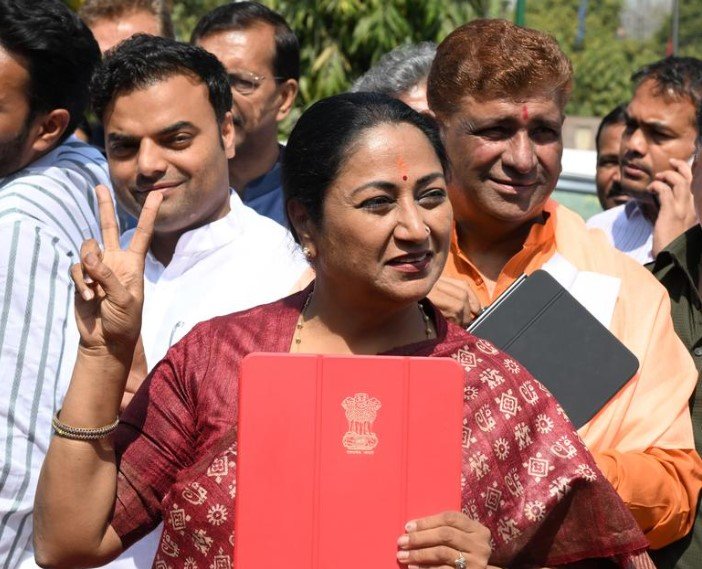Delhi Chief Minister Rekha Gupta spoke firmly on Sunday, June 8, assuring residents that no slum cluster in the city would face illegal demolition. Her statement came amid growing tensions following the recent razing of the Madrasi Camp slum, which sparked sharp criticism from the opposition and widespread concern among displaced families.
Gupta emphasized that all slum demolitions carried out recently were under court orders, leaving the government and administration with little choice but to act. Still, she pledged protection for those living in the city’s many informal settlements, calling them “the lifeline of Delhi.”
Court Orders and Slum Clearance: The Recent Demolition Controversy
The demolition of the Madrasi Camp slum on June 1 has become a flashpoint. Residents and the Aam Aadmi Party (AAP) vehemently opposed the action, arguing that the displaced families were moved far from the city center, making their lives harder.
However, Chief Minister Gupta said the court’s directive was clear: the Madrasi Camp was illegally built over the Barapullah drain, which is vital for preventing waterlogging and flooding in the area. The encroachment was hampering silt removal and causing drainage problems.
She also highlighted two other recent demolitions in the city:
-
Wazirpur, where slum dwellers had encroached on an active railway line.
-
Jailorwalabagh, where slum dwellers were being rehabilitated with flats already handed over.
“The court’s orders must be followed. The government and administration simply cannot ignore them,” she said. “But I want to assure the people — no illegal demolitions will happen.”
The CM raised concerns about safety risks too. In Wazirpur, encroachment on railway property not only violates the law but also puts lives at risk. “If an accident happens because of encroachment, who will be responsible?” she asked pointedly.

AAP’s Movement and the Displaced Residents’ Struggles
The Aam Aadmi Party, on the other hand, is not holding back. They have announced a movement to protest slum demolitions, set to begin at Jantar Mantar on June 29. AAP’s key grievance is the relocation of families from Madrasi Camp to distant places like Narela, far from their original communities and workplaces.
According to AAP, this forced displacement breaks social bonds, disrupts livelihoods, and adds to the burden on already vulnerable families. The party is demanding better rehabilitation options closer to the city center and more humane policies that consider the lived realities of slum dwellers.
The party also alleges that despite promises, the government has not adequately ensured proper housing or amenities for those relocated. Many residents report struggling with access to transportation, schools, and jobs.
Jan Sewa Camp Launch: Gupta’s Assurance to Haiderpur Residents
Amid this heated backdrop, CM Rekha Gupta inaugurated the construction of a Jan Sewa Camp in Haiderpur, a slum cluster in North West Delhi. Addressing the gathered crowd, she reiterated her commitment to protecting residents from illegal demolition.
“You all are the lifeline of Delhi. Your homes will not be touched illegally,” she told them with clear resolve.
Her tone suggested a desire to calm fears and restore trust, but many locals remain wary given the recent demolitions.
Residents expressed mixed feelings. Some appreciated the CM’s words, hopeful for stability. Others, however, worry whether promises will hold in the face of ongoing urban development pressures.
Balancing Urban Development and Residents’ Rights: A Persistent Challenge
Delhi’s slums are home to a significant chunk of its population. According to recent estimates, nearly 15-20% of the city’s residents live in informal settlements. These areas often lack basic infrastructure but serve as critical hubs for low-income workers who keep the city running.
Yet, slum areas frequently sit on land targeted for development projects—drains, roads, railways, or commercial spaces. This makes their existence vulnerable to court-ordered clearances, pitting urban planning against human costs.
The government faces a tough balancing act:
-
Respecting the law and court orders.
-
Ensuring safety and sanitation for all.
-
Providing humane rehabilitation and affordable housing.
-
Addressing the livelihoods and community needs of slum residents.
What the Data Shows on Urban Slum Demolitions
| Year | Number of Slum Clusters Razed | Number of Families Displaced | Court-Ordered vs Illegal Demolitions |
|---|---|---|---|
| 2022 | 75 | 8,500 | 90% court-ordered |
| 2023 | 60 | 7,200 | 85% court-ordered |
| 2024 | 80 | 9,000 | 92% court-ordered |
| 2025 (till June) | 35 | 4,200 | 95% court-ordered |
The figures reveal a steady pattern of slum clearance, mostly backed by court rulings. Illegal demolitions, though less frequent, remain a sensitive and contentious issue.
Voices From the Ground: A Human Perspective
One Haiderpur resident, Meena Devi, summed it up poignantly: “We want to live with dignity. We work hard, but always live in fear that one day everything will be taken away.”
Local NGOs urge the government to engage more with communities, seeking alternatives before demolition. “Eviction without proper dialogue is just a band-aid solution,” said Rohit Sharma, founder of Urban Rights Forum.
What Lies Ahead?
With the AAP movement gathering momentum, and the government emphasizing legal compliance and safety, Delhi’s slum situation remains a hot topic. Residents and activists alike watch closely, hoping for solutions that respect both the law and human dignity.
Will Rekha Gupta’s promise to prevent illegal demolitions hold? Can authorities balance urban growth with the basic rights of millions? The coming weeks will be telling.
